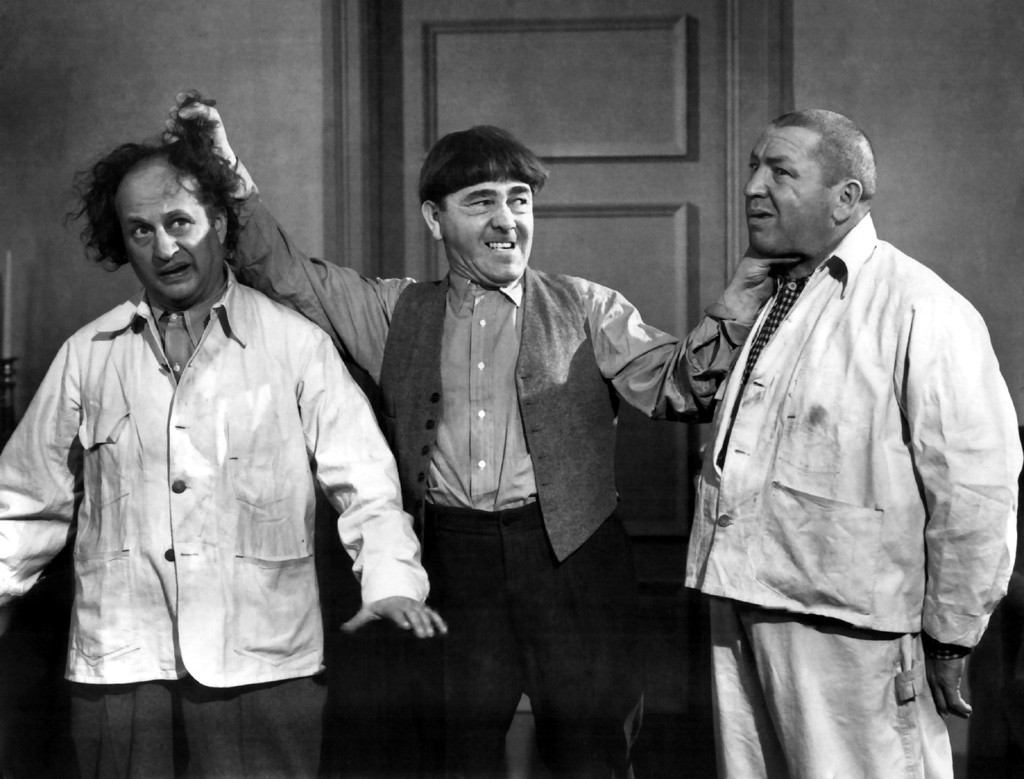
Scott McCloud on the Hostility in Humor
"Scott McCloud on the Secret of Humor" at The Atlantic (February 4, 2015).The piece is an attempt to explain Freudian humor theory, especially the idea that humor stems from disguised hostility. “Most humor is a refined form of aggression and hatred,” Spiegelman writes. “Our savage ancestors laughed with uninhibited relish at cripples, paralytics, amputees, midgets, monsters, the deaf, the poor and the crazy.” I’ve taken this idea as a jumping-off point in my own work. Whenever I’m considering why something’s funny or not, I always tell myself: find the victim. Humor is targeted. It may be aimed at an individual, at an institution, or the entire superstructure of rational thinking. But something is always being skewered. ¶ The leadoff joke of “Cracking Jokes” is one case in point — finding the victim helps us articulate why the joke is funny. We’re laughing at the patient. Despite the doctor’s well-meaning (and self-assured) intervention, the patient can’t escape his delusions. It’s a vision of humanity as impervious to logic, impervious to rational thinking, impervious to progress. That’s a pretty bleak notion. And yet the depiction of humanity as this series of malfunctioning bumper cars, forever careening about and crashing into each other and failing to make any kind of progress—well, it’s delightful. It skewers the very idea of progress as the natural order, of learning as the natural order. What better target for one’s disguised hostility than the whole institution of education and progress? These normalizing societal forces constrain us, keep our ids forever hamstrung. And so — through humor — we fight back.